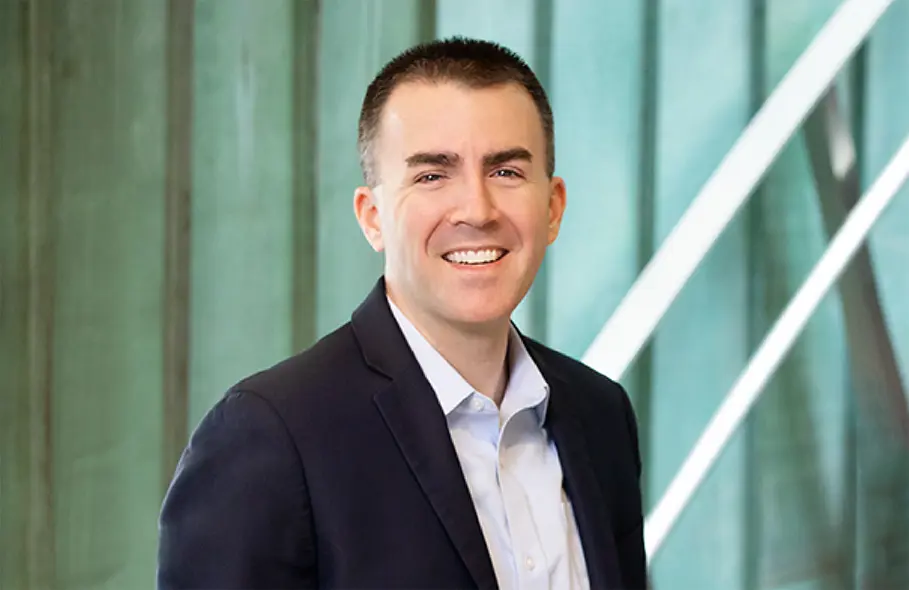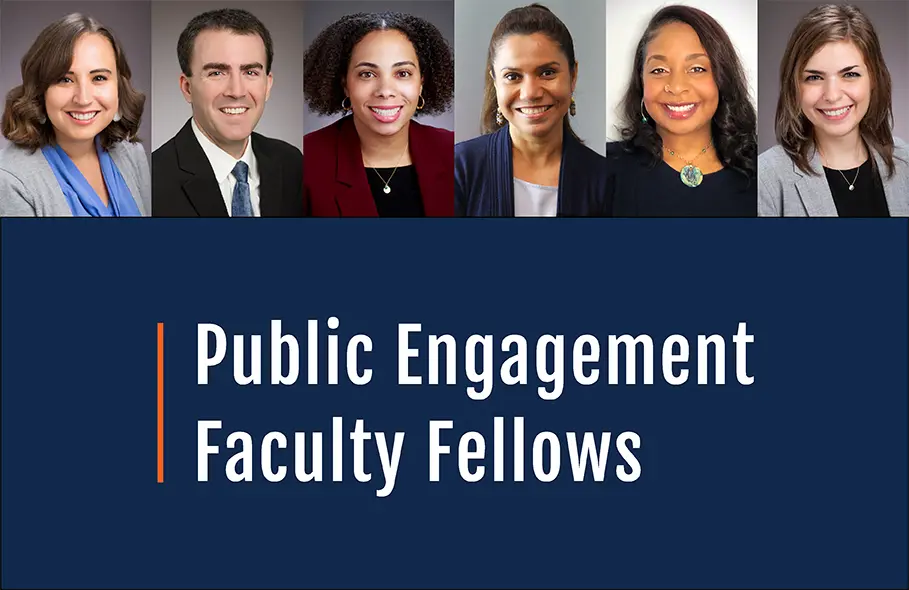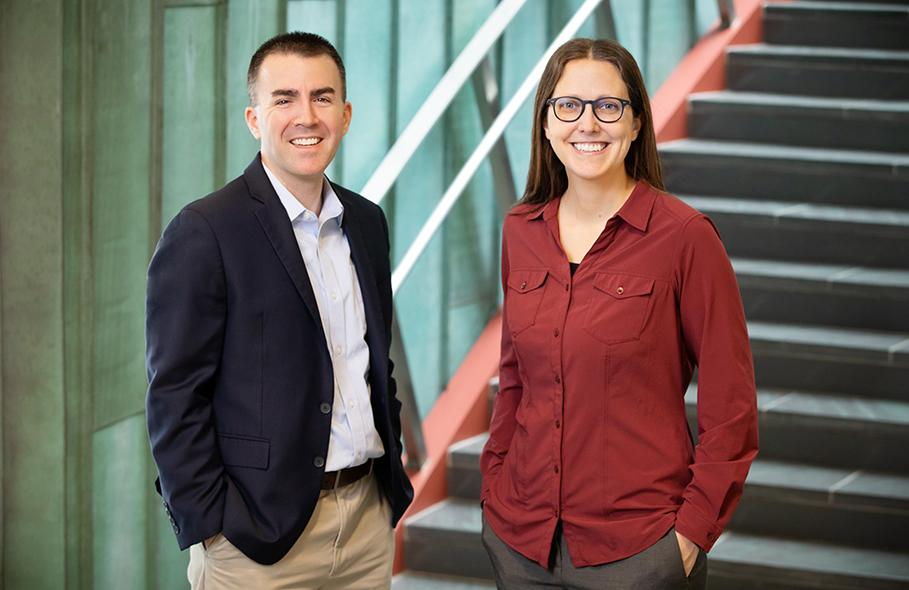Faculty Viewpoint: Effective Illinois Public School Policy, Funding Takes More Nuanced Approaches
by Ashley Lawrence Pellegrini / Jul 25, 2023

Paul Bruno, assistant professor in the Department of Education Policy, Leadership and Organization, has been part of the College of Education faculty since 2020. He uses quantitative methods to study school finance, school choice, resource allocation in schools, and teacher quality.
In addition to writing policy briefs and reports for policymakers and practitioners, Bruno’s research has been published in several peer-reviewed journals and books. His work as co-author was recently cited in the Biden-Harris Administration’s 2023 Economic Report of the President. A native Illinoisan, prior to his career in higher education Bruno taught middle school science in Oakland and Los Angeles, California. We asked Bruno for more background on his career trajectory and to share how his scholarly work has expanded since arriving at the University of Illinois.
How did you become interested in research topics like school finance, resource allocation, and teacher hiring?
Paul Bruno: “It was definitely my experience as a middle school teacher that opened my eyes to school administration and policy issues, generally. Before I started teaching, I don’t think I was aware of how varied an experience I might have as a teacher in different schools—how schools could be run and funded very differently. Not until my second teaching job did I begin to see how this has very big implications for teachers—and of course, also for student experiences and outcomes. So that’s what I decided to study in graduate school.”
Regarding Illinois school districts’ particular challenges, what has stood out to you so far?
PB: “Illinois has extreme variation in school district funding levels, coming from differing tax systems and funding structures throughout the state—which, as we said earlier, impacts teacher and student learning experiences. In EPOL’s Educational Administration and Leadership programs, we’ve made an effort to bring together and serve students from all over the state, and I think it’s something we’ve benefitted from. One of the rewards for us, and me personally, is getting perspectives from those working in the Chicago suburbs versus those in urban districts or rural districts. The diversity of perspectives within a section of a course can complicate some things, but it’s very interesting to learn from them and see our graduate students learn from each other.”
Are there common themes emerging from these diverse graduate student perspectives?
PB: “Hearing about school staffing challenges has been illuminating and has informed how I think about teacher shortages, for example. We have students who have severe teacher and staffing shortage issues in their schools. On the other hand, we have students working in districts where they routinely get 70, 80, 100 applicants for positions.
“As someone who’s very policy oriented, this has informed my conversations with policymakers at the state level about the need to target our policy solutions at the specific problems that our specific schools face. For instance, thinking of this as a general teacher shortage means we might be providing help that’s not needed in certain school districts, instead of the help that’s needed in districts where the issue is more severe.”
Teacher hiring practices go hand in hand with teacher shortage issues. What can you tell us about your work in this area?
PB: “There are a variety of factors behind how district administrators hire teachers today. The philosophies of the administrators (principals) in the schools and how those intersect with the policy environment that they’re working within; how much accountability pressure they feel for student outcomes; how much they can 'trust their gut' about making decisions; and how confident they feel—based on the resources at hand—that they can hire high quality educators for whatever positions they want to fill.
“My own hiring experiences at schools varied wildly—for some positions I came in and spent the whole day being interviewed and giving lesson demonstrations. But I was once offered a teaching job based on two phone calls with the same person; I never met anyone in person! It’s not a complete coincidence now that teacher hiring is one of the things that I study.
“Over the last few years here in Champaign-Urbana I’ve formed some connections and relationships with principals and admin staff in the public school districts, and I’ve partnered with a couple of them on projects looking at teacher hiring processes and how to do this more effectively.”
What other faculty members are you collaborating with in this work?
PB: “I love working with everyone in the Educational Administration and Leadership program in the College. In particular, I’ve started collaborating with Jennifer Nelson (assistant professor in EPOL). One sign she’s a great collaborator is that she’s convinced me to engage in a qualitative study—my first ever qualitative research project—looking at teacher hiring. We’re interviewing school principals to see how they hire teachers and work within a bureaucratic system and navigate pressures in teacher hiring.
“My work until now has exclusively been dealing with spreadsheets and data provided by school administrators; it’s where I’m most comfortable. I certainly would not have done this without Jennifer’s partnership and support.”
What other research highlights would you like to mention?
PB: “I do work now in computer science education, studying it from a policy and administration standpoint. I've co-written a couple of papers on the topic with Colleen Lewis, associate professor of Computer Science in the Grainger College of Engineering at UIUC. I'm asking questions like, 'As schools try to offer more and more CS classes, how are they able to fund those expansions?' and 'Who are schools finding to teach these CS courses?' and 'What kinds of resource trade-offs are schools making between CS courses and other courses—arts, music, etc.?'
“I like to think of these research interests as aligned, in terms of thinking of how schools are allocating resources and how policy is giving them different incentives to make resource changes. We’re already talking about a STEM teacher shortage, and if anything I’m worrying a little bit more about getting people who know a lot about programming to come work in schools. How do we convince them? It seems worth thinking hard about.”

